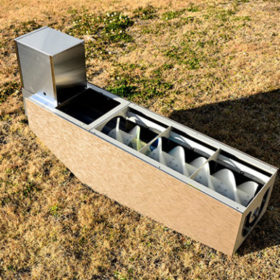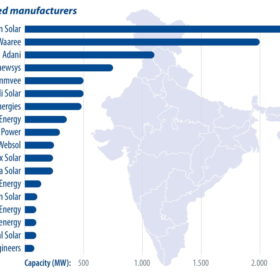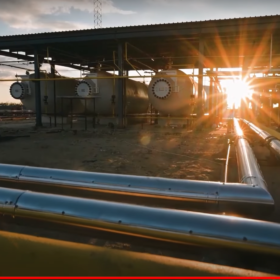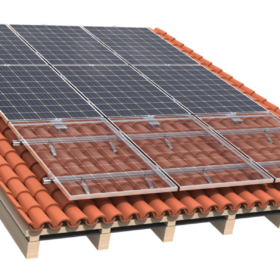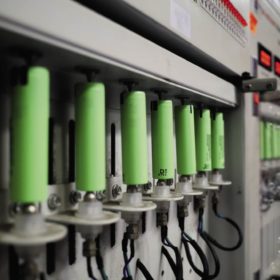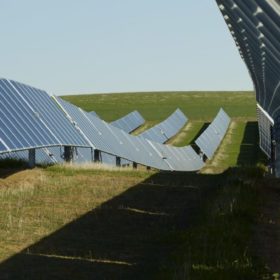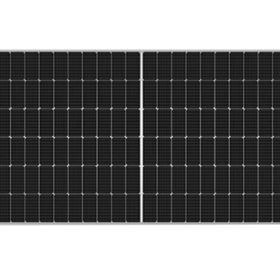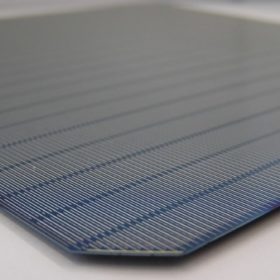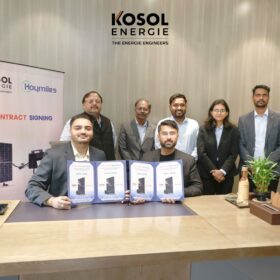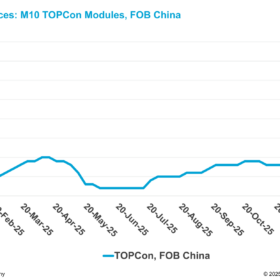Ricoh launches mini hydropower system for remote locations, usable with solar-plus-storage
The 1kW pico-hydro generation system can be used with factory drainage systems and irrigation canals. According to the manufacturer, it is made with 3D-printed sustainable materials based on recycled plastics and is able to generate electricity even with a small stream of water. Solar and storage may be linked to the system to ensure stable power supply.
The long read: India’s solar manufacturing wave
India installed 14GW of new PV in 2021. This year, utility-scale developers are pushing to import modules and build inventory for 2022 installations, before a basic customs duty goes into effect in May, with a 40% duty for module imports and 25% for cells. PV module distributors are also expected to build their inventories to save on duties and have enough supply for the C&I segment in 2022. After assessing the country’s current demand, project pipeline, and module availability, IHS Markit’s Dharmendra Kumar forecasts 18GW to be added in 2022.
National hydrogen policy, half a step forward
Green hydrogen cost in India could reduce by 20-30% to INR 230-240/kg with the measures announced under the National Hydrogen Policy. A further cost reduction to achieve parity with grey hydrogen by 2030 is possible, provided policymakers don’t overlook five critical areas.
Aerocompact unveils quick-mounting hook for PV arrays on pitched roofs
The device is claimed to be an ideal solution for deploying solar arrays on Mediterranean roof architecture.
Ola, Hyundai, Reliance and Rajesh Exports emerge winners in 50GWh battery cell tender under PLI Scheme
Those put under the waiting list include Mahindra & Mahindra Limited, Exide Industries Limited, Larsen & Toubro Limited, Amara Raja Batteries Limited, and India Power Corporation Limited.
Vikram Solar files for IPO to raise funds for 2GW integrated fab
The Kolkata-headquartered solar manufacturer has filed draft papers with SEBI for its initial public offering (IPO), which comprises a fresh issue of up to INR 1,500 crore and an offer for sale (OFS) of up to five million equity shares by the existing shareholders.
Nextracker unveils new tracker for sloping ground
The NX Horizon-XTR tracker can be used with all types of modules and is claimed to be an ideal solution for sloping, uneven, and demanding terrain.
Gautam Solar unveils 566W bifacial module
The G-2X Mono series solar modules boast a reported front and back power conversion efficiency of up to 25.72%.
China and Hong Kong are India’s biggest lithium battery suppliers
The two nations together supply 96% of India’s lithium-ion cell and battery imports and almost 70% of non-rechargeable lithium products.
POLO-IBC solar cell with 23.7% efficiency
Scientists in Germany have developed two kinds of solar cells based on n-type doped electron-collecting poly-Si on oxide (POLO) junctions with aluminum-alloyed p+ contacts. Both devices are claimed to be possible upgrades of PERC technologies. The best-performant cell is an IBC device showing a power conversion efficiency of 23.71%, an open-circuit voltage of 711.5mV, a short-circuit current of 41.3mA/cm2, and a fill factor of 80.9%.
